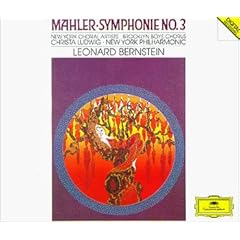asdf
100+ Head-Fier
- Joined
- Feb 23, 2006
- Posts
- 113
- Likes
- 0
First of all, I don't consider myself a classical music newb--just ignorant (and seemingly becoming more ignorant as the years pass). I played timpani in the orchestra through sophomore year in university. I've listened to (and enjoyed) "classical" music all of my life. Part of the reason I stuck with orchestra was because I enjoyed listening to what was played (I never found timpani particularly interesting).
Anyway, to my question: Do you need to understand music theory to properly appreciate Mahler? I keep reading that Mahler is very difficult for the masses (paraphrasing). I have virtually no knowledge of music theory (other than what is necessary for a reasonably proficient percussionist).
Second question: Can anyone recommend a BASIC introduction to music theory book?
Anyway, to my question: Do you need to understand music theory to properly appreciate Mahler? I keep reading that Mahler is very difficult for the masses (paraphrasing). I have virtually no knowledge of music theory (other than what is necessary for a reasonably proficient percussionist).
Second question: Can anyone recommend a BASIC introduction to music theory book?




